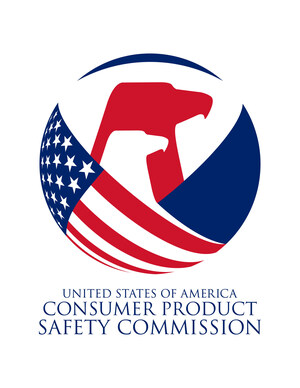
CPSC, FEMA and USFA Warn About Deadly Dangers After Hurricane Sandy Passes
WASHINGTON, Oct. 30, 2012 /PRNewswire-USNewswire/ -- Hurricane Sandy is a massive, slow moving storm that has left millions of Americans along the East Coast without electricity. The U.S. Consumer Product Safety Commission (CPSC), Federal Emergency Management Agency (FEMA), and U.S. Fire Administration (USFA) are warning residents in hurricane-impacted areas about the deadly dangers that still remain as Hurricane Sandy tracks north.
(Logo: http://photos.prnewswire.com/prnh/20030904/USCSCLOGO)
Consumers need to use great caution during a loss of electrical power, as the risk of carbon monoxide (CO) poisoning from portable generators, fire from candles, and electrical shock from downed power lines increases.
In order to power lights, keep food cold or cook, consumers often use gas-powered generators. CPSC, FEMA, and USFA warn consumers never to use portable generators indoors, in basements, garages, or close to a home. The exhaust from generators contains high levels of carbon monoxide (CO), greater than that of multiple cars running in a garage, which can quickly incapacitate and kill.
"Our goal is to save lives and prevent further disasters in the aftermath of Sandy," said CPSC Chairman Inez Tenenbaum. "Never run a generator in or right next to a home. Carbon monoxide is an invisible killer. CO is odorless and colorless and it can kill you and your family in minutes."
"Our thoughts and prayers are with those in the Mid-Atlantic states who've been affected by this storm. We strongly encourage all of those in affected areas to stay indoors, in a safe location and to continue to monitor conditions," said FEMA Administrator Craig Fugate. "As the federal government continues to support the life-saving efforts of state, tribal and local officials, individuals need to do their part and remain out of harm's way. Do not try to return home until local officials give the all clear."
"We know from experience as victims try to recover from disasters, they will take unnecessary risks with candles, cooking and generators. These risks often result in additional and tragic life safety consequences," said U.S. Fire Administrator Ernie Mitchell. "When you consider the challenges faced by firefighters and their departments to also recover from the same disasters, it is important that all of us remember even the simplest of fire safety behaviors following disasters of any type."
Deaths involving portable generators have been on the rise since 1999 when generators became widely available to consumers. There have been at least 755 CO deaths involving generators from 1999 through 2011. While reporting of incidents for 2011 is ongoing, there were at least 73 CO related deaths involving generators last year. The majority of the deaths occurred as a result of using a generator inside a home's living space, in the basement or in the garage.
Do not put your family at risk. Follow these important safety tips from CPSC, FEMA, and USFA in the aftermath of the storm.
Portable Generators
Never use a generator inside a home, basement, shed or garage even if doors and windows are open. Keep generators outside and far away from windows, doors and vents. Read both the label on your generator and the owner's manual and follow the instructions. Any electrical cables you use with the generator should be free of damage and suitable for outdoor use.
Charcoal Grills and Camp Stoves
Never use charcoal grills or camp stoves indoors. Deaths have occurred when consumers burned charcoal or used camp stoves in enclosed spaces, which produced lethal levels of carbon monoxide.
CO Alarms
Install carbon monoxide alarms immediately outside each sleeping area and on every level of the home to protect against CO poisoning. Change the alarms' batteries every year.
Electrical and Gas Safety
Stay away from any downed wires, including cable TV feeds. They may be live with deadly voltage. If you are standing in water, do not handle or operate electrical appliances. Electrical components, including circuit breakers, wiring in the walls and outlets that have been under water should not be turned on. They should be replaced unless properly inspected and tested by a qualified electrician.
Natural gas or propane valves that have been under water should be replaced. Smell and listen for leaky gas connections. If you believe there is a gas leak, immediately leave the house, leave the door(s) open, and call 911. Never strike a match. Any size flame can spark an explosion. Before turning the gas back on, have the gas system checked by a professional.
Candles
Use caution with candles. If possible, use flashlights instead. If you must use candles, do not burn them on or near anything that can catch fire. Never leave burning candles unattended. Extinguish candles when you leave the room.
Consumers, fire departments and state and local health and safety agencies can download CPSC's generator safety posters, door hangers and CO safety publications at CPSC's CO Information Center or order free copies by contacting CPSC's Hotline at (800) 638-2772.
Download FEMA and USFA's lifesaving information on disasters at www.Ready.gov and www.usfa.dhs.gov.
CPSC Media Contact: (301) 504-7501
USFA Media Contact: (301) 447-1853
SOURCE U.S. Consumer Product Safety Commission






Share this article